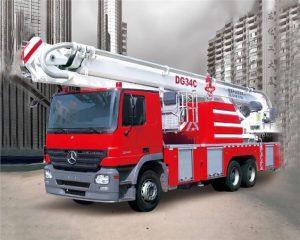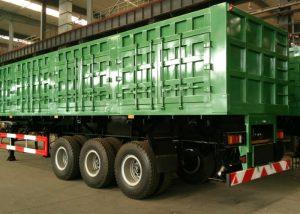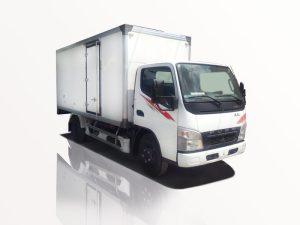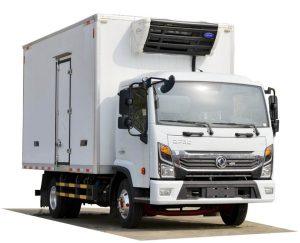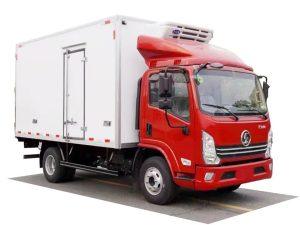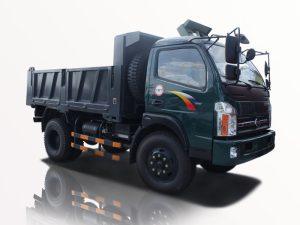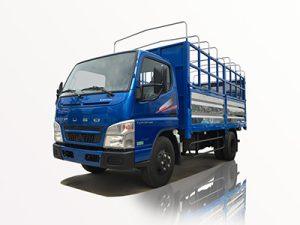Monday to Saturday - 8:00 -17:30
Electric Powered Cargo Trucks: The Future of Sustainable Hauling
The logistics and transportation sector is rapidly evolving, with a significant shift towards sustainability. One of the most promising developments is the electric powered cargo truck. As concerns about climate change and air quality grow, businesses and governments are exploring innovative solutions to reduce their carbon footprints. Electric trucks are at the forefront of this shift, offering a cleaner and more efficient alternative to traditional diesel-powered vehicles. In this article, we’ll delve into the benefits, technology, market trends, challenges, practical examples, and much more regarding electric powered cargo trucks.
Understanding Electric Powered Cargo Trucks
What is an Electric Powered Cargo Truck?
An electric powered cargo truck is a commercial vehicle that operates using one or more electric motors, powered by rechargeable battery packs. Unlike conventional trucks that rely on internal combustion engines fueled by diesel or gasoline, electric trucks produce zero tailpipe emissions, contributing to a cleaner environment. These trucks come in various sizes and capabilities, designed for different applications in freight and logistics.
Types of Electric Cargo Trucks
- Light-Duty Trucks
- Medium-Duty Trucks
- Heavy-Duty Trucks
- Urban Delivery Vans
- Specialized Cargo Vehicles
Benefits of Electric Powered Cargo Trucks
Environmental Impact
One of the most significant advantages of electric cargo trucks is their positive impact on the environment. By operating without fossil fuels, these vehicles contribute to reduced greenhouse gas emissions and improved air quality. According to studies, replacing traditional trucks with electric alternatives can substantially decrease urban pollution levels.
Cost Savings
While the initial investment in electric trucks may be higher than their diesel counterparts, they offer substantial savings in the long run. Lower fuel costs, reduced maintenance expenses, and incentives provided by governments for electric vehicle adoption can lead to significant financial benefits.
| Expense Type | Electric Truck | Diesel Truck |
|---|---|---|
| Fuel Cost (per mile) | $0.02 | $0.10 |
| Maintenance Cost (annual) | $1,000 | $2,000 |
Performance and Reliability
Electric trucks deliver impressive performance, often outperforming their internal combustion engine counterparts in torque and acceleration. The reliability of electric motors also means fewer breakdowns and reduced downtime, enhancing operational efficiency.
Energy Efficiency
Electric cargo trucks are significantly more energy-efficient than conventional trucks. They convert over 60% of electrical energy from the grid to power at the wheels, compared to traditional trucks, which convert only about 20% of the energy stored in diesel fuel.
Regulatory Incentives
Many governments worldwide are incentivizing the transition to electric vehicles through subsidies, tax credits, and grants, making it easier for businesses to invest in electric powered cargo trucks.
Technology Behind Electric Powered Cargo Trucks
Battery Technology
The backbone of electric powered cargo trucks is their battery technology. Modern electric trucks use lithium-ion batteries, which are lighter and more efficient than previous generations. These batteries can be charged quickly and have a longer lifespan, offering a practical solution for the transportation industry.
Charging Infrastructure
For electric trucks to achieve widespread adoption, a robust charging infrastructure is essential. Public charging stations, as well as depots equipped with fast chargers for fleet operators, play a critical role in this transition. Companies are investing heavily in developing infrastructure to support their electric fleet.
Advanced Technologies
- Regenerative Braking
- Telematics
- Autonomous Driving Features
- Connected Vehicle Technologies
Market Trends and Adoption
Current Market Landscape
The electric cargo truck market is witnessing rapid growth, driven by technological advancements and increasing regulatory pressure to curb emissions. Global sales of electric heavy-duty vehicles are expected to reach 2 million units by 2030, reflecting a significant shift in the transportation sector.
Leading Manufacturers
Several prominent manufacturers are leading the charge in electric cargo truck production. These names include:
- Tesla
- Rivian
- Volta Trucks
- BYD
- Freightliner
Consumer Acceptance
Despite the benefits, consumer acceptance is a vital factor in the electric cargo truck market. Education on the advantages of electric trucks, alongside testimonials from early adopters, can encourage more businesses to transition to electric fleets.
Challenges Facing Electric Powered Cargo Trucks
Range Anxiety
Range anxiety refers to concerns about the distance electric trucks can travel on a single charge. While advancements in battery technology are increasing ranges, many potential users remain hesitant due to concerns about long-distance hauling.
High Initial Costs
Although operational costs are lower, the upfront cost of electric cargo trucks can be prohibitive for many businesses. However, financial incentives and leasing options are helping to mitigate these challenges.
Limited Charging Infrastructure
The current limitations in charging infrastructure present a challenge for companies looking to adopt electric trucks. Significant investment will be required to expand charging networks, particularly in remote or rural areas.
Practical Examples of Successful Electric Truck Deployments
Case Study: Amazon’s Electric Delivery Fleet
Amazon has committed to integrating 100,000 electric delivery vans into its fleet by 2030. This initiative is part of their broader strategy to achieve net-zero carbon by 2040.
Case Study: UPS’s Hybrid Solutions
UPS is trialing electric cargo trucks and hybrid alternatives in its urban delivery network, showcasing their commitment to sustainability while maintaining operational efficiency.
Case Study: Coca-Cola’s Electric Distribution
Coca-Cola is rolling out electric-powered trucks across major cities to enhance their sustainability efforts and reduce emissions from their delivery operations.
Future of Electric Powered Cargo Trucks
Innovations on the Horizon
The future of electric powered cargo trucks promises a host of innovations. Advances in autonomous vehicle technology, increased battery efficiency, and fully integrated charging solutions will continue to transform the industry.
Policy Changes and Environmental Goals
As more governments introduce stricter emissions regulations and scale up their commitments to climate change initiatives, the demand for electric cargo trucks will likely surge in the coming years.
The Role of Corporate Responsibility
Companies are increasingly realizing the importance of corporate social responsibility (CSR). Embracing electric trucks aligns with CSR goals and enhances brand image, making it an attractive option for many businesses.
FAQs
What is the range of electric cargo trucks?
The range of electric cargo trucks varies significantly based on the model and battery capacity, but most new models offer between 100 to 300 miles on a full charge.
How long does it take to charge an electric cargo truck?
Charging time can vary depending on the charger used. Fast chargers can recharge an electric truck to 80% in as little as one hour, while regular chargers may take several hours.
Are electric cargo trucks more expensive than diesel trucks?
The initial purchase price of electric trucks is generally higher, but they offer lower operating and maintenance costs, which can make them more economical over time.
Are there any incentives for purchasing electric cargo trucks?
Yes, many governments offer tax credits, rebates, and grants to businesses that purchase electric vehicles, which can help offset the initial costs.
Can electric cargo trucks operate in extreme weather conditions?
Yes, electric cargo trucks are designed to operate in various weather conditions, though their range can be impacted by extreme temperatures. Most modern trucks include features to mitigate these effects.
What types of businesses can benefit from electric powered cargo trucks?
Businesses involved in distribution and delivery, such as retail, food and beverage, and e-commerce, can all benefit significantly from transitioning to electric powered cargo trucks.


